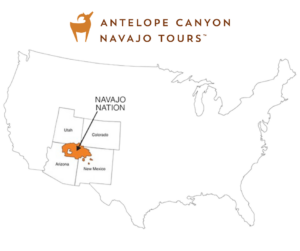Indian reservations are unique and significant aspects of American history and culture. These lands, set aside by the U.S. government for Native American tribes, represent the resilience, heritage, and struggles of indigenous communities.
In this blog post, we will delve into the essence of Indian reservations, exploring their origins, purpose, legal framework, and cultural significance.
1. Historical Background
The establishment of Indian reservations traces back to the early days of European colonization in North America. As settlers expanded westward, conflicts with Native American tribes arose, leading to the forced displacement and marginalization of indigenous peoples.
In response, the U.S. government implemented treaties and policies that allocated specific lands as reservations for Native American tribes.
2. Legal Framework
Indian reservations are federally recognized territories governed by tribal governments under the umbrella of tribal sovereignty. This concept grants tribes the inherent right to self-governance and jurisdiction over their lands, internal affairs, and cultural practices.
The legal framework is primarily defined by the U.S. Constitution, federal legislation, and court rulings such as the Indian Self-Determination and Education Assistance Act of 1975.
3. Tribal Sovereignty
Tribal sovereignty is a critical aspect of Indian reservations, allowing tribes to exercise control over various aspects of their communities. This includes the ability to enact laws, establish courts, levy taxes, regulate natural resources, and provide essential services such as healthcare, education, and infrastructure development.
However, it’s essential to note that tribal sovereignty exists within a complex relationship with the U.S. government and is subject to certain limitations.
4. Cultural Significance
Indian reservations hold immense cultural significance as they serve as the heartland for indigenous communities, preserving their traditions, languages, and customs. These lands are not just a physical space but embody the spiritual connection of Native American tribes to their ancestral territories. Reservations often feature cultural centers, museums, and events that celebrate indigenous heritage, providing opportunities for cultural exchange and education.
5. Economic Challenges and Opportunities
While Indian reservations are at the core of Native American identity, they also face numerous economic challenges. Many reservations grapple with high poverty rates, limited access to healthcare and education, inadequate infrastructure, and unemployment.
However, several tribes have sought to overcome these obstacles through economic development initiatives, such as gaming casinos, tourism ventures, renewable energy projects, and cultural tourism as is done with Antelope Canyon. These endeavors help create jobs, generate revenue, and enhance the overall well-being of tribal communities.
6. Tourism and Cultural Experiences
Indian reservations have become popular tourist destinations, attracting visitors from all over the world who seek to learn about Native American history and culture. Many reservations offer guided tours, cultural festivals, traditional arts and crafts markets, and opportunities to experience indigenous cuisine. Visitors can immerse themselves in the rich tapestry of Native American traditions, including dance, music, storytelling, and spirituality.
Indian reservations stand as living testimonies to the resilience and cultural heritage of Native American tribes. These unique territories offer a glimpse into the complex history, legal framework, and challenges faced by indigenous communities. By understanding and appreciating the significance of Indian reservations, we can foster greater respect, appreciation, and support for the diverse cultures that enrich the fabric of our nation.
Come see us at Antelope Canyon Navajo Tours to learn more about the people, culture, and history!

